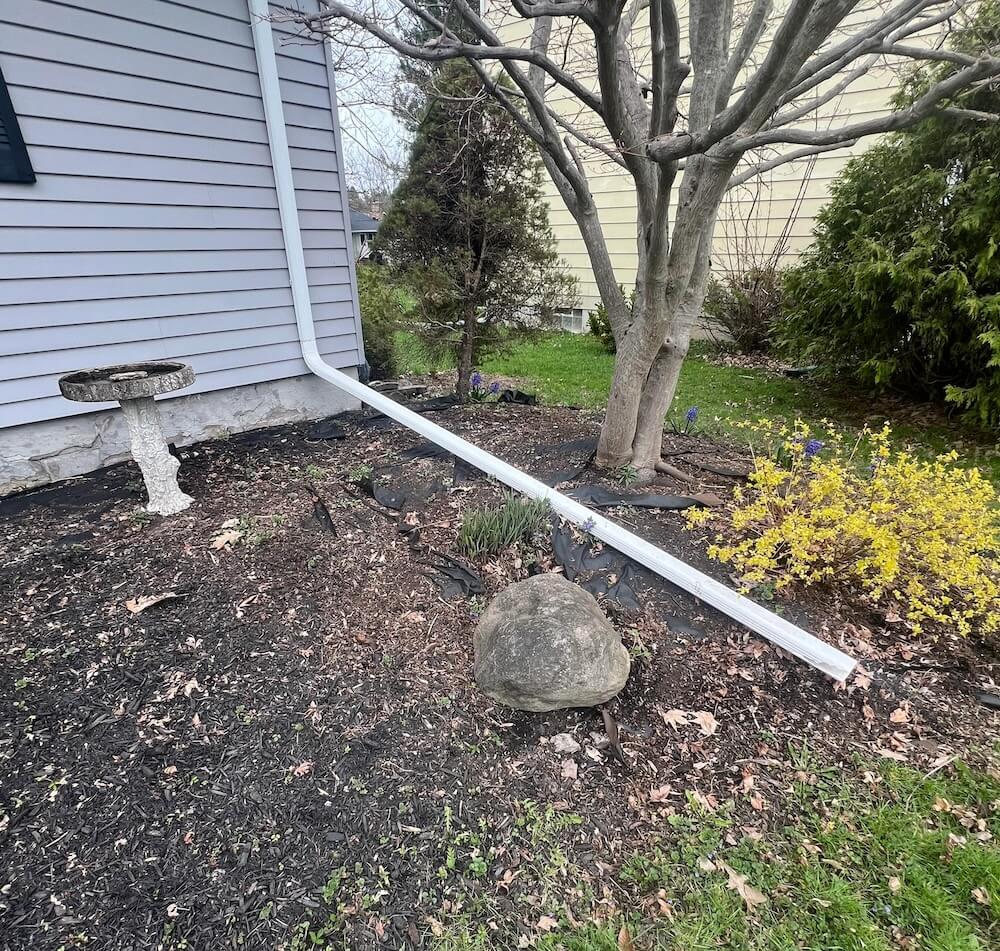A first-time homeowner shared a landscaping blunder in the r/landscaping subreddit community and was quickly met with some honest, yet helpful advice. The Redditor noted they have a slope and a raised bed near their house that has a weed barrier. They asked whether the barrier was worth keeping despite it being exposed in many areas, and if they should add a thick layer of mulch.
Redditors immediately responded that barriers such as those are bad for gardens.


"All that did was choke the ground and plants around it," responded one Redditor. "Remove it and never use it again."
A landscaper also joined the conversation:
"Weed barrier + mulch is the worst option for the health of the tree. What happens is the mulch starts decomposing, but because it is separated from the soil, it forms a dense sludge on top of the fabric rather than incorporating into the soil," they wrote. On the other hand, they suggested that "wood mulch directly on top of soil will be incorporated and aerated naturally as it breaks down by bugs and worms, a process known as bioturbation."
The landscaper also mentioned the OP will likely have a similar amount of weeds with or without the weed barrier.
The solution, as is the case with many landscaping issues, lies with a native garden. By keeping mulch without the weed barrier, then adding native plants and de-weeding occasionally, the homeowner saves time, energy, and money.
Many new homeowners have enjoyed rewilding their lawns as it is less effort for a more beautiful yard. It saves money on water, fertilizers, and pesticides, as they are virtually unneeded to create a natural lawn. Groundwater is stored remarkably well within natural lawns, meaning watering is only needed in hot weather, while pesticides and fertilizers are not necessary because the native plants will adjust perfectly to the climate's soil.
David, from New York, transitioned to a natural lawn recently and wrote in The Cool Down's Guide about it. He explained that his goal "was to rewild my 0.13 acre. The front yard is intended as an insect and pollinator haven. Plus it needs to look like a garden."
🗣️ What's the hardest thing about taking care of your yard?
🔘 Mowing the lawn 🏡
🔘 Controlling weeds 🌿
🔘 Keeping pests at bay 🐿️
🔘 I don't have a yard 🤷
🗳️ Click your choice to see results and speak your mind
He was "amazed at the diversity of insects, birds, small mammals and amphibians that live or visit this tiny yard.
Join our free newsletter for easy tips to save more and waste less, and don't miss this cool list of easy ways to help yourself while helping the planet.









